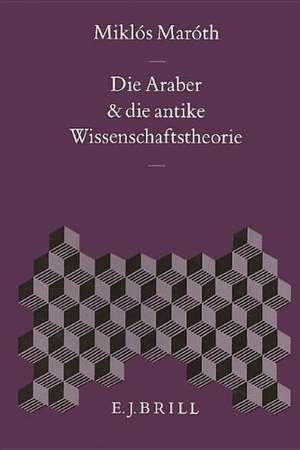Die Araber Und die Antike Wissenschaftstheorie: Islamic Philosophy, Theology and Science. Texts and Studies, cartea 17
Autor Miklos Marothde Limba Germană Hardback – 30 sep 1994
Preț: 775.91 lei
Preț vechi: 946.23 lei
-18% Nou
Puncte Express: 1164
Preț estimativ în valută:
148.50€ • 154.44$ • 124.27£
148.50€ • 154.44$ • 124.27£
Carte indisponibilă temporar
Doresc să fiu notificat când acest titlu va fi disponibil:
Se trimite...
Preluare comenzi: 021 569.72.76
Specificații
ISBN-13: 9789004100084
ISBN-10: 9004100083
Pagini: 274
Dimensiuni: 171 x 238 x 22 mm
Greutate: 0.54 kg
Editura: Brill Academic Publishers
Seria Islamic Philosophy, Theology and Science. Texts and Studies
ISBN-10: 9004100083
Pagini: 274
Dimensiuni: 171 x 238 x 22 mm
Greutate: 0.54 kg
Editura: Brill Academic Publishers
Seria Islamic Philosophy, Theology and Science. Texts and Studies
Recenzii
'La solide connaissance que M. Maroth a des traditions philosophiques de l'Antiquité permet de mieux replacer les traditions philosophiques de l'Antiquité arabes, notamment en logique et en théorie de la science dans la suite des interprétations de l'Antiquité tardive.'Claude Gilliot, Revue des Sciences Philosophiques et Théologiques, 1995.
'"La solide connaissance que M. Maroth a des traditions philosophiques de l'Antiquite permet de mieux replacer les traditions philosophiques de l'Antiquite arabes, notamment en logique et en theorie de la science dans la suite des interpretations de l'Antiquite tardive."' Claude Gilliot, "Revue des Sciences Philosophiques et Theologiques", 1995.
'"La solide connaissance que M. Maroth a des traditions philosophiques de l'Antiquite permet de mieux replacer les traditions philosophiques de l'Antiquite arabes, notamment en logique et en theorie de la science dans la suite des interpretations de l'Antiquite tardive."' Claude Gilliot, "Revue des Sciences Philosophiques et Theologiques", 1995.
